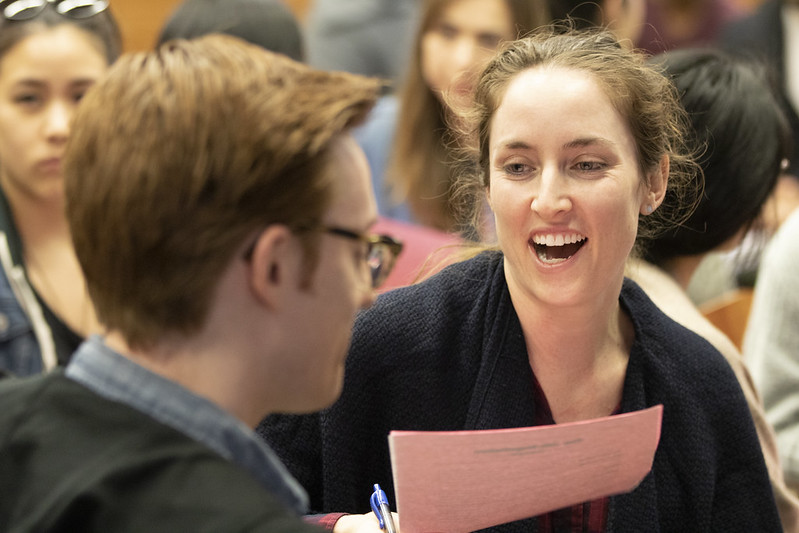Workshop Teaches Real-World Skills in Job and Salary Negotiation
Public policy lecturer Kimberly Ling Murtaugh explained the ins and outs of job and salary negotiation at a workshop conducted in the Charles E. Young Research Library on March 7, 2019. The workshop was sponsored by Luskin Career Services, which promotes career readiness and prepares graduate students for employment. The workshop attracted students from all three UCLA Luskin graduate programs, including many second-year students preparing to enter the workforce after they graduate in the spring. Ling Murtaugh explained the essentials of negotiation analysis in three steps. First, job candidates can determine how much power they have in a negotiation by identifying their best alternatives to a negotiated agreement (BATNA) — a strong grasp of their options if the negotiation fails. Next, job candidates should identify their “reservation price,” the point at which they walk away. The last step is identifying a target, which Ling Murtaugh defined as a “realistically optimistic deal that will take care of your wants.” She recommended making a checklist of needs and wants to decide what kind of a salary is acceptable. “Negotiations are just another problem to be solved,” she said. “Tackle [negotiation] the same way you would another problem in the classroom.” While salary negotiation can be daunting, Ling Murtaugh explained that coming out of school is one of the best times to negotiate a jump in salary. She recommended preparing for negotiation by practicing with family members, friends or classmates. “Know your worth,” Ling Murtaugh told the graduate students. “Candidates have sources of power that they often forget.” — Zoe Day
View photos from the workshop on Flickr.

